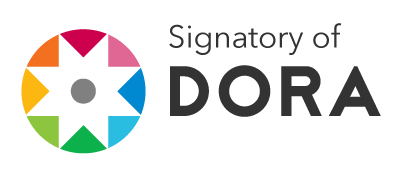Development of deliberate and emerging strategies: a proposal based on basic definitions from a soft systems methodology
Abstract
This theoretical proposal, is related to the strategy development from an evolutional perspective and connections between deliberate and emerging strategies, using basic definitions and soft systems methodology (SSM) proposed by Checkland & Scholes (1994). In order to achieve this, an interaction among “autonomous” and semiotic (agents, organizations and surroundings) entities in real and representative interaction systems is proposed. These notions allow establishing decision, performance and intentionality concepts. Deliberate and emerging strategy notions are restated and an operation cycle among strategy types is detailed.
Downloads
References
Aldrich, H., Hodgson, G., Hull, D., Knudsen, T., Mokyr, J. & Vanberg, V. (2008) In defense of generalized darwinism. En: Journal of evolutionary economics. Springer Ed. Vol.18 No. 5: 577-596.
Aldrich, H. & Ruef, M. (2006) Organizations evolving. London: Sage.
Andrade, L.E. 2003. Los demonios de Darwin. semiótica y termodinámica de la evolución biológica. 2ª Ed. Universidad Nacional de Colombia, Facultad de Ciencias, Departamento de Biología, 265p.
Bennett, Charles H. (1987) “Demons, Engines and the Second Law”. En: Scientific American:108-116 (November, 1987).
Bleda, M. (2001) Evolutionary economics and complex systems theory. Thesis submitted to the University of Manchester for the degree of Phd in Economics in the Faculty of Social Science and Law.
Braybrooke, D., & Lindblom (1963) A strategy of decision. Free Press, New York.
Chakravarthy, B., Roderick, Y. & White, E. (2002) Strategy process: forming, implementing and changing strategies. En: Pettigrew, Andrew, T. Howard & R. Whittington (2002) Handbook of Management & Strategy. Sage Publications. London. 519p.
Checkland, P., & Scholes, J. (1994) La metodología de sistemas suaves en acción. Colección Megabyte. Ed. Noriega. México.
Coase, R. (1937) “The Nature of the Firm”. Economica (Blackwell Publishing) 4 (16): 386–405. doi:10.1111/j.1468-0335.1937.tb00002.x. JSTOR 2626876.
Cyert, R. & March, J. (1963) A behavioral theory of the firm. Englewood cliffs, Prentice-Hall. N. J.
Dosi G., Nelson R. & Winter S. (2000) The nature and dynamics of organizational capabilities. Oxford university press. Gb.
Eisenhardt, K. & Martin, J. (2000) Dynamic capabilities: what are they? En: Strategic Management Journal, 21:1105-1121.
Fraser; J. (1975) Of Time, Passion and Knowledge: Reflections on The Strategy of Existence. New York: George Braziller, Inc., 52p.
Garud, R. & Van, de Ven (2002) Strategic Change Processes. En: Pettigrew, A.M., H. Thomas, y R. Whittington (Eds). Handbook of Strategy and Management. Sage Eds, London: 206-231.
Gindis, D. (2007) The Firm as an Entity: Implications for Economics, Accounting and Law. Biondi, Y., Canziani , A. & Kirat , T. (eds.). London: Routledge: 266-291.
Gould, S. (1996) Creando a los creadores. En: Antracnosis. Traducción de Enrique Torres, profesor Emérito, Universidad Nacional de Colombia.
Guyot; V. (2005) Conceptos Extranjeros, Campos de Conocimiento y Complejidad. En: Educación y Alteridad. Ediciones Novedades Educativa.
Hatten, K. (1999) Managing the Process-Centered Enterprise. En: Long Range Planning, London, Vol. 32, Iss. 3.
Hernández, I. (2008) Empresa, innovación y desarrollo. Bogotá, Universidad Nacional de Colombia y Unibiblos.
Hodgson, G. (2004) The evolution of institucional economics. New York, Routledge, 2004.
Hodgson, G. (1994) The return of institutional economics. In: Smelser N.J. and R. Swedberg (eds.). En: The handbook of economic sociology: 58-76. Princeton, NJ: Princeton University Press.
Holland, J.H. (2004) El orden oculto, de cómo la adaptación crea la complejidad. Fondo de Cultura Económica, México. 193p.
Kauffman, S. (1993) The origins of order: self-organization and selection in evolution. Oxford University Press, New York.
Kauffman, S. (2003) Investigaciones. Metatemas, España.
Lewin, A. & Volberda, H. (1999) Prolegomena on convolution: a framework for research on strategy and new organizational forums. En: Organization Science, 10(5): 519-534.
Lindblom, C. (1959) The science of ‘muddling through’. En: Public Administration Review, Vol. 19: 79-88.
March, J., & Simon, H. (1958) Organizations. Wiley & Sons.
Metcalfe, J. (1997) Labour markets and competition as an evolutionary process. En: Arestis, P., G. Palma and M. Sawyer (eds). Markets, employment and economic policy: essays in honour of Geoff Hartcourt. London: Routledge: 328-43.
Mintzberg, H. (1978) Patterns in strategy formation. En: Management Science, XXIV(9): 934-948.
Mintzberg, H. (1987) The strategy concept i: five ps for strategy. Fall 1987, California Management Review.
Montoya, I. (2010) Una contribución a la comprensión de las estrategias deliberadas y emergentes de las organizaciones, desde una perspectiva evolutiva. Doctorado thesis, Universidad Nacional de Colombia. Disponible en: http://www.bdigital.unal.edu.co/2141/
Montoya, I. (1999) Gestión Global, Siglo XXI, Universidad Nacional de Colombia, Bogotá
Montoya, A. & Montoya, I. (2003) el direccionamiento estratégico y su aplicación en los sistemas complejos y en la gerencia ambiental. En: Revista Innovar, No. 21: 81-104.
Montoya, I. & Leon, E. (2004) los ciclos de generación de competencias y su aplicación en las organizaciones. En: Revista Innovar, Julio – Diciembre de 2004, No. 24: 9-27.
Nelson, R. & Winter, S. (1982) An evolutionary theory of economic change. Cambridge Ma: Belknap Press.
Nicolis, G. & Prigogine, I. (1989) Exploring Complexity: An Introduction. Piper, Munchen.
Peirce, C. (1965) Collected papers. Harvard University Press, Cambridge, M.A.
Popper, K. (1986) El universo abierto. un argumento a favor del indeterminismo. Tecnos Ed. Madrid.
Quinn, J. (1980) Strategies for change: logical incrementalism. Irwin, Homewood, Ill.
Radich, F., Drejer, A. & Printz, L. (2005) Emergent strategisk ledelse - vejen frem…? Beskrivelse og analyse af emergent strategisk ledelse som teoretisk ledelsesbegreb og praktisk ledelsesværktøj. Strategy—Lab©, V/Institut for Ledelse, Handelshøjskolen I Århus. 74p.
Simon, H. (1945) Planning for organization and management. En: Public Management, 27, 108-111.
Stacey, R. (1991) The chaos frontier. Creative strategic control for business. Butterworth-Heinemann. Redwood Press, Wiltshire, GB. 409p.
Schwartz; B. (1976) Review of Time, Passion And Knowledge: Reflections on The Strategy of Existence. En: The American Journal of Sociology, Vol. 82 No.1, P. 265-267.
Teece, D.J. (1988) Technological change and the nature of the firm. In: Dosi, G. (Ed.). Technical change and economic theory. London, Pinter Publisher.
Teece, D.J., Pisano, G. & Schuen, A. (1997) Dynamic capabilities and strategic management. En: Strategic Management Journal, 18(7), 509-530.
Teece, D., Rumelt, R., Dosi, G., & Winter, S. (1994) Understanding corporate coherence. En: Journal of Economic Behavior and Organization, 23: 1-30.
Vanberg, V. (1994) Rules and choice in economics. Londres, Routledge.
Zurek, W. (1989) Algorithmic randomness and physical entropy. En: Physical Review, 40 (8): 4731-4751.











